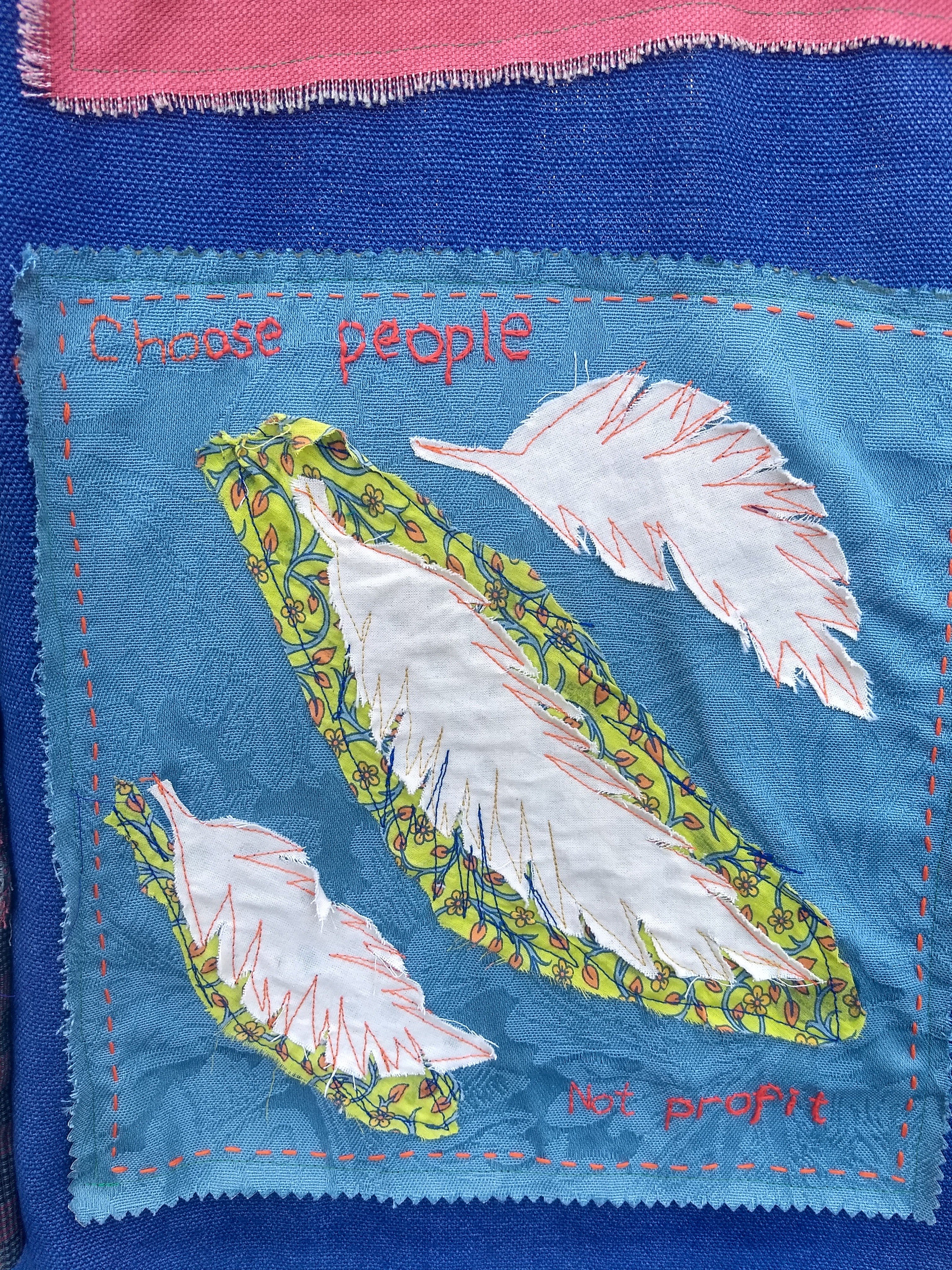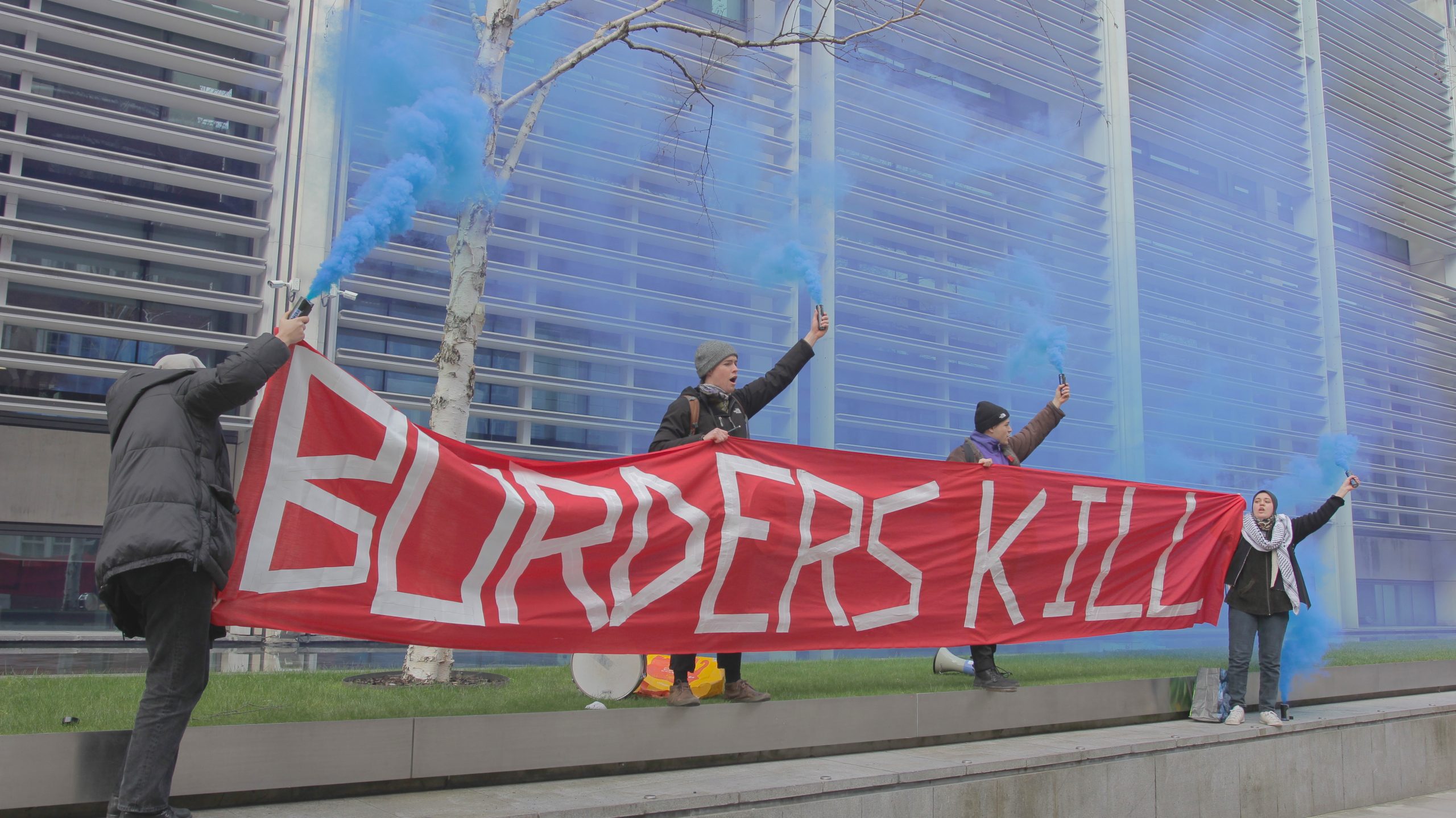We hope all CAAT’s supporters are well and keeping safe. A lot of CAAT’s work will be evolving over the coming months as we adapt to the current crisis. Staff are working remotely, local group meetings and activities are moving online, and we’re looking at how Covid-19 interlinks with our different areas of work.
Some parts of the arms trade are on hold too. The biennial arms fair at Farnborough, where weapons were due to be promoted to military buyers from around the world, has already been cancelled. But in other areas it’s important we maintain our scrutiny.
Increase in state powers and policing
From ramped up surveillance of citizens in China and Singapore to accusations of a racist, politicised response in Sri Lanka, governments globally are responding with measures that some fear could outlast the pandemic, and further harm marginalised groups.
The UK Government’s COVID-19 Bill contains powers lasting two years which give police new rights to detain people. While this may make some feel safer, it’s a worrying move while people of colour are already subjected to disproportionate levels of detention and state violence in the UK. Read more about the new laws.
There is already evidence of ‘authoritarian leaders using the Covid-19 crisis to tighten their grip’ with the pandemic used to advance Orban’s power grab in Hungary – and the government’s control in Cambodia, while teargas and other crowd-control equipment has been used to violently enforce controls.
Yemen
As yet there are no confirmed cases of Covid-19 within Yemen, but five long years of catastrophic war have destroyed its healthcare system. Ahmed Aidarous, 36, a resident of the southwestern city of Taiz, told the Middle East Eye, “Advanced countries like America are unable to fight coronavirus so Yemen will be an easy victim for corona as there is no good health system or good leadership that can help.”
The Saudi-backed Yemeni government has closed schools and cancelled all flights, which had only just resumed for people who needed to leave the country to access healthcare abroad. Mwatana for Human Rights reports that at least 45 people had already lost their lives waiting for promised humanitarian flights to access healthcare.
We took action this month to mark five years of war in Yemen, and stand together in solidarity and resistance. While coronavirus means there is a risk that the war is forgotten, it’s as important as ever that we keep up the pressure for peace and end UK arms sales.
Borders

The first case of Covid-19 has been diagnosed at Yarl’s Wood, the immigration detention Centre in Bedford which holds survivors of torture and sexual violence, and where racist verbal, physical and sexual abuse have been reported. Already experiencing high levels of mental distress and self harm, now detainees face the risk of infection by Covid-19.
The Centre is run by the world’s 73rd largest arms company Serco Group, who work closely with the UK military sector, winning £92m of Ministry of Defence contracts in 2018. A legal case related to the health crisis forced the Government to release 300 detainees recently, but thousands remain detained across the UK. There have been over 30 deaths reported in UK immigration centres, and thousands of attempted suicides.
CAAT is developing its thinking around UK borders policy, as the Government’s ‘hostile environment’ immigration strategy is part of a wider racist, state sponsored violence that keeps weapons flowing to countries where they predominantly harm people of colour.
It is also some of the same arms companies profiting from weapons sales causing many to flee their homes which profit again when they win lucrative contracts to provide security services and surveillance technologies at increasingly militarised borders. Find out more about the companies profiting twice.
Arms to ventilators?
In these turbulent and challenging times we will be looking for hope too – that in future when governments tell us things can’t change, we know that change can come almost overnight when the political will is there.
Rolls Royce, who produce military aircraft engines, and aerospace companies like Airbus which profit from the sale of fighter jets to Saudi Arabia, have been called on by the UK government to help produce components for ventilators in the fight against coronavirus. The case for moving our engineering skills from industries that take lives to ones that save them has never been stronger.
Fatih Birol, head of the International Energy Agency, recently called government economic stimulus packages in response to the coronavirus crisis as “a historic opportunity” to tackle the climate emergency. “This is a huge opportunity we cannot miss,” he said. “Here the issue is not only the level of money but the direction of the money”.
Find out more about the call to convert jobs in arms manufacturing to greener, more socially useful industries in the New Lucas Plan.

Rethinking ‘security’
We can also see more than ever that our security is not advanced by wars, or by spending billions on nuclear weapons systems and aircraft carriers, but by building fairer societies that support the most vulnerable, and by investing in our public services like the NHS and social care.
Let’s work together to ensure that out of this crisis we create a Just Recovery, and build a world where real human needs, are prioritised.

